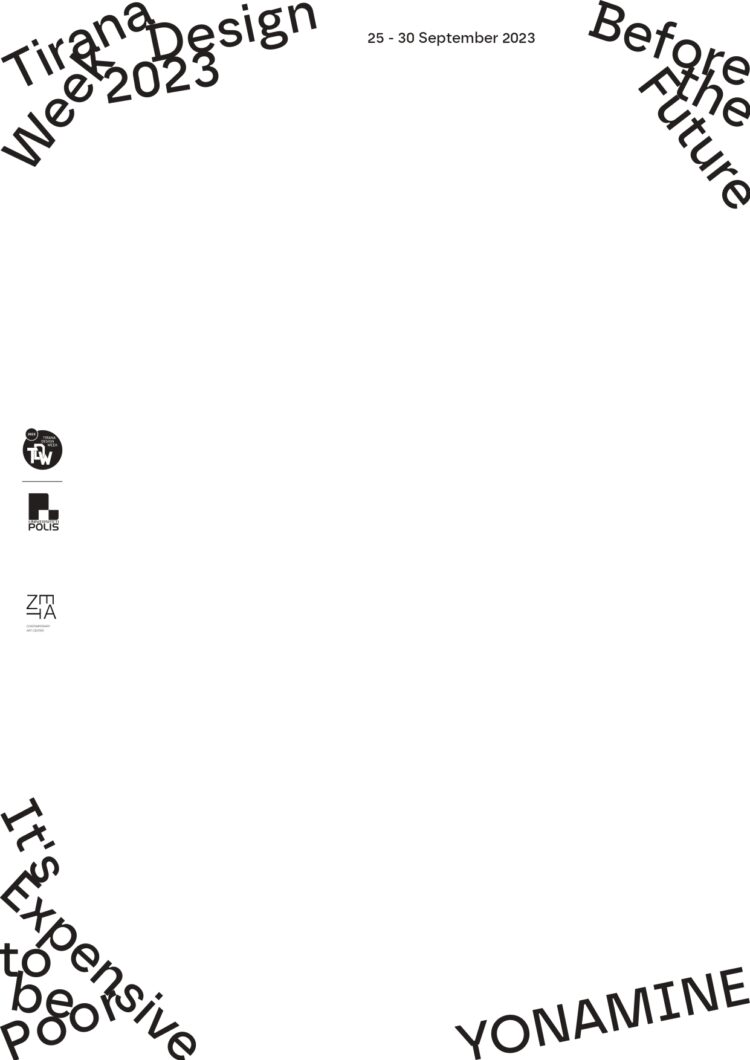BEFORE THE FUTURE and IT’S EXPENSIVE TO BE POOR
September 26, 2023, 18:00 – Vernisage
19:00 – Artist talk by Yonamine
The projects “BEFORE THE FUTURE” and “ITS EXPENSIVE TO BE POOR” by Yonamine, condition our attention towards the periphery, marginality, the subordinates and the material heritage with modest content produced in parallel with the public monumentalism of the center’s policies.
BEFORE THE FUTURE
The project “Before the Future” took shape after a research phase on vernacular production in the Albanian context. The curatorial team of “TDW 2023” went on to examine several provinces of Albania, trying to “dust-off” objects produced mainly before the industrial boom, or those that were produced autonomously (in isolated geographical contexts), in parallel with the development of industry (serial production), developing the processes of objectification in workshops, featuring the physiognomy of the ancient world. y collecting and exhibiting these utilitarian objects of everyday life, the claim is to celebrate humility as a biological condition in this hyper-ambitious environment of the 21st century.
IT’S EXPENSIVE TO BE POOR
Through the engaged design and without aesthetic claims, the artist from Angola Yonamine, evidences a powerful statement no one wants to hear. The artist uses the poster, one of the most favored paste-up formats, to confront political and societal ideas about identity, beauty standards and moral choices both on the European and African continents.
The exhibition “Before the Future”, opened as part of “Tirana Design Week 2023”, organized by Polis University, under the title “Design for the New World(s)”, took shape after a research phase on vernacular production in the Albanian context. The curatorial team of “TDW 2023” went on to examine several provinces of Albania, trying to “dust-off” objects produced mainly before the industrial boom, or those that were produced autonomously (in isolated geographical contexts), in parallel with the development of industry (serial production), developing the processes of objectification in workshops, featuring the physiognomy of the ancient world. The analytical, psychological and libidinal structures of the revolutionary politics of the 20th century were devoted, with unsparing potential, to the temporal form of the future – even this obsession with the “key” of the future, gave the name of the avant-garde movement: futurism. The Futurist Manifesto of 1909 was an act of faith to the future, where the history of the 20th century, the century that believed in the future, was carved on a cultural and ideological level. The future is not a natural dimension of the mind, rather, it is a modality of perception and imagination. Its modes and features change through cultural metamorphoses.
The elites of societies – mainly Western – declared that the splendour of the world has been enriched by a new beauty: the beauty of speed. Global society developed fierce competitive structures and fostered narcissism in the nervous systems of young man. Industrial progress generated a new social order with new dominance dynamics. Accumulated inferiority during the pre-industrial social systems caused, at the psycho-social level, the ruling classes of the 20th century to impose authoritarian and contemptuous approaches towards the communities under the proletariat, marginalizing them, rejecting them or forcing them to submit to new forms of aggressive exploitation, with such behaviors hidden under ideological slogans that propagated equal opportunities for all.
As Franco “Bifo” Beradi claims in his book “After the future”, the year 1977 was a great turning point for the global mindset, a delusional moment for the century that believed in the future. However, modern genealogy continues to invest its capital in new utopia, which again promise the future. The human psyche is succumbing to “Semiocapitalism”, this time with new rhythms – the rhythms of digital speed. The liberal ideology that generated the Cyberculture of the 90s transformed the labour market into a rational, almost mathematical environment. “Semiocapitalism” absorbs the productivity of the human mind into immateriality and this is considered a contemporary parameter. Depression, panic, dissatisfaction, anxiety, fear, terror – these are the emotional conditions of work in today’s world based on the dogmas of competition and exploitation of the emotional energy of biological bodies.
By collecting and exhibiting these utilitarian objects of everyday life, the claim is to celebrate humility as a biological condition in this hyper-ambitious environment of the 21st century. All these objects hide, in their physical weight, meditative processes, the fragility of human fantasy and imperfection. Above all, these objects modestly inherit political freedom and (unconscious or not) resistance in not compromising the authenticity of life.
Endri Dani, Tirana 2023
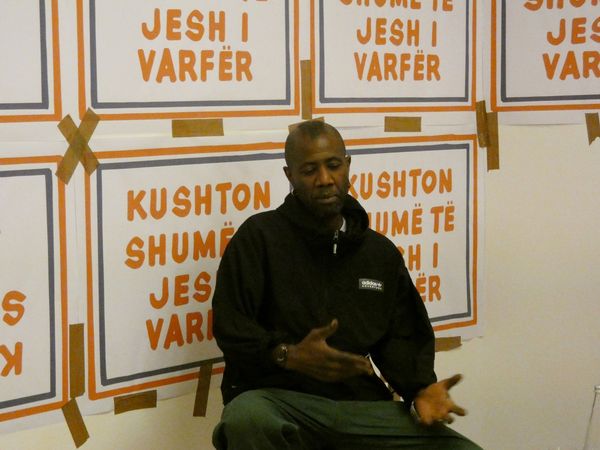
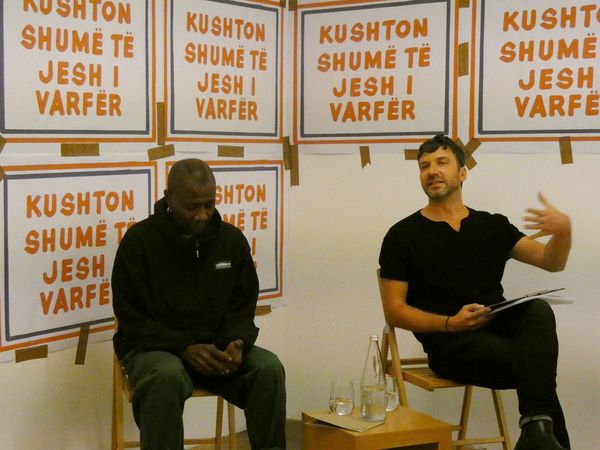
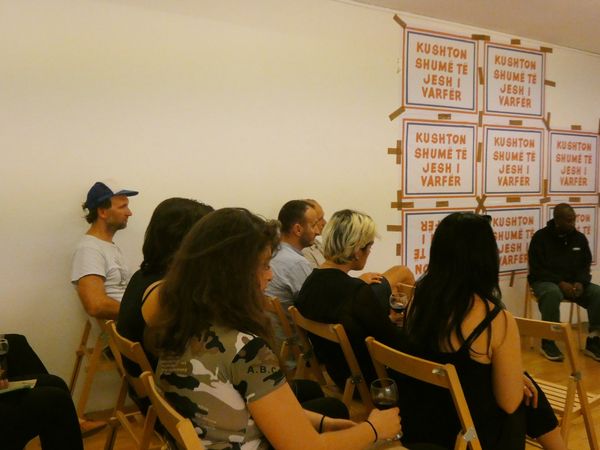
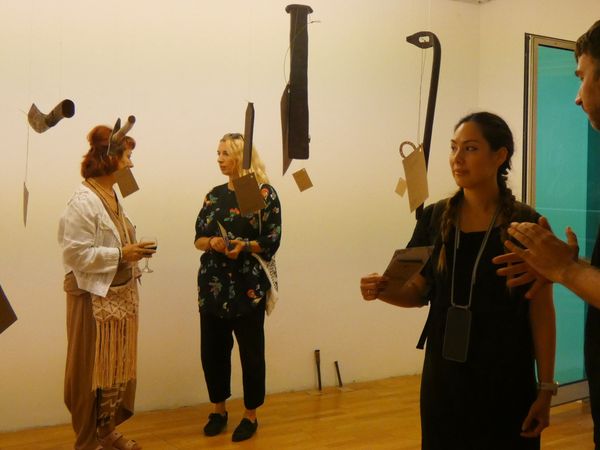
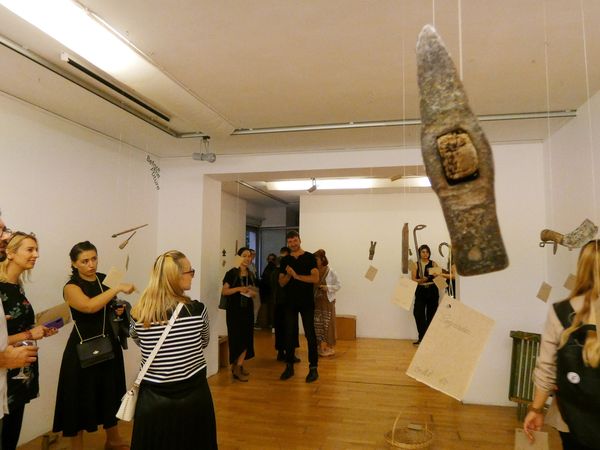
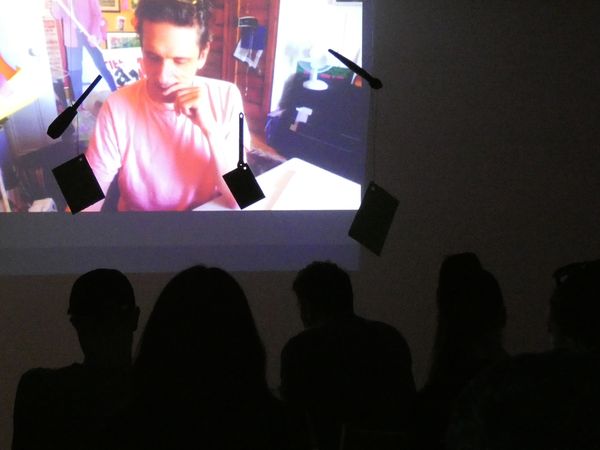
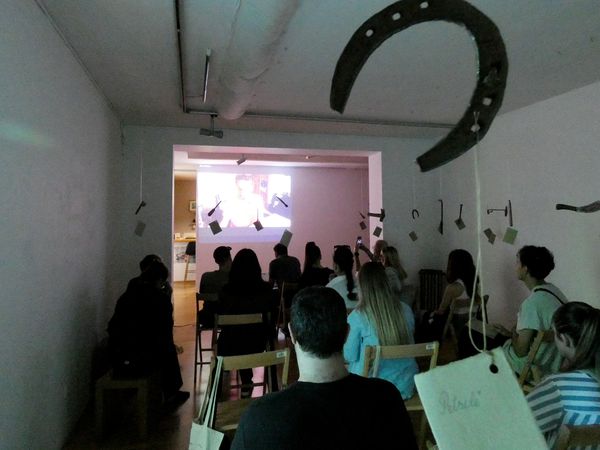
Artist TALK
“Thank god for immigrants”
Meet Turner Prize winner Jeremy Deller through the talk “JOY IN PEOPLE” held at ZETA Contemporary Art Center in the framework of TDW Tirana Design Week 2023.
